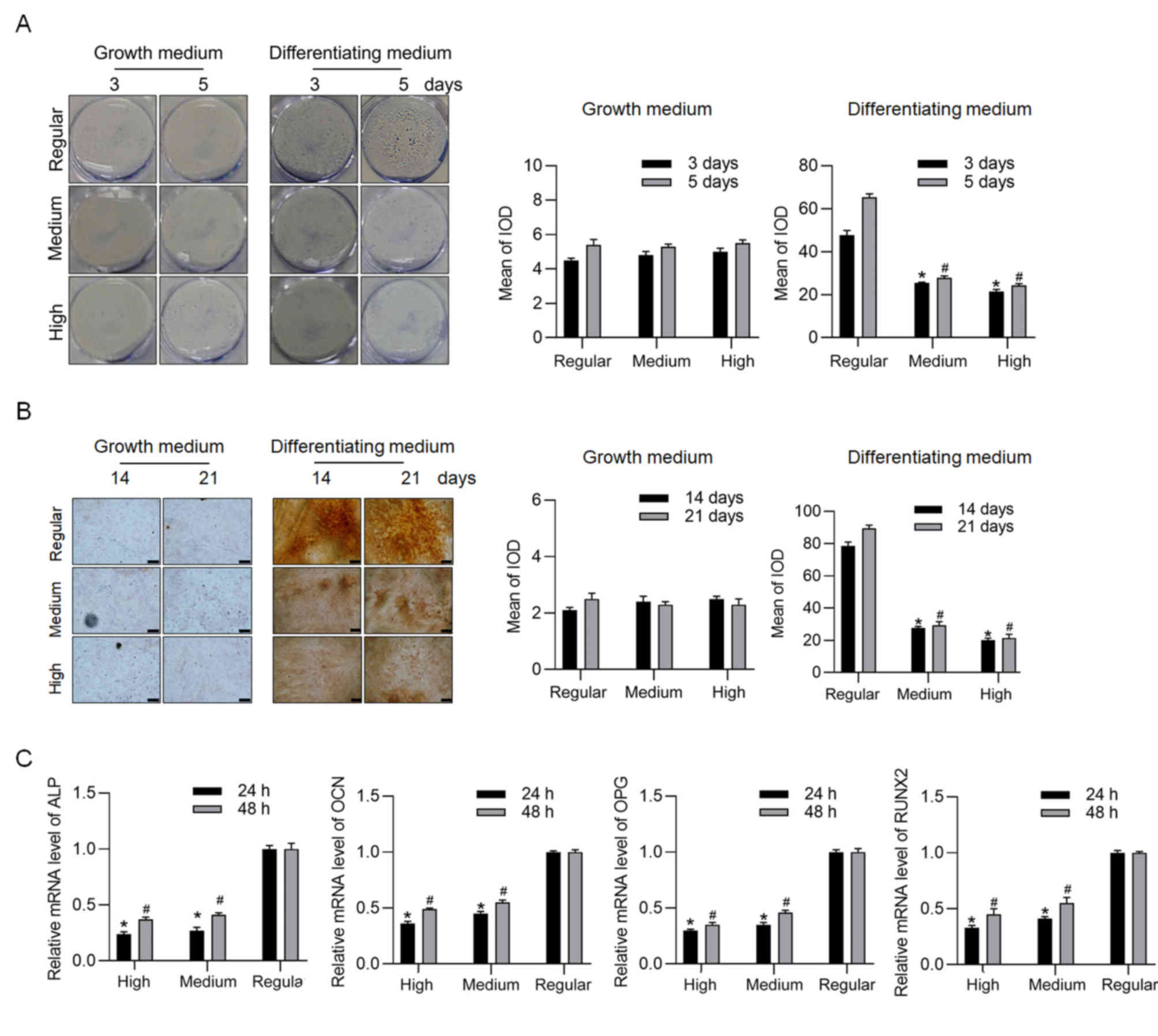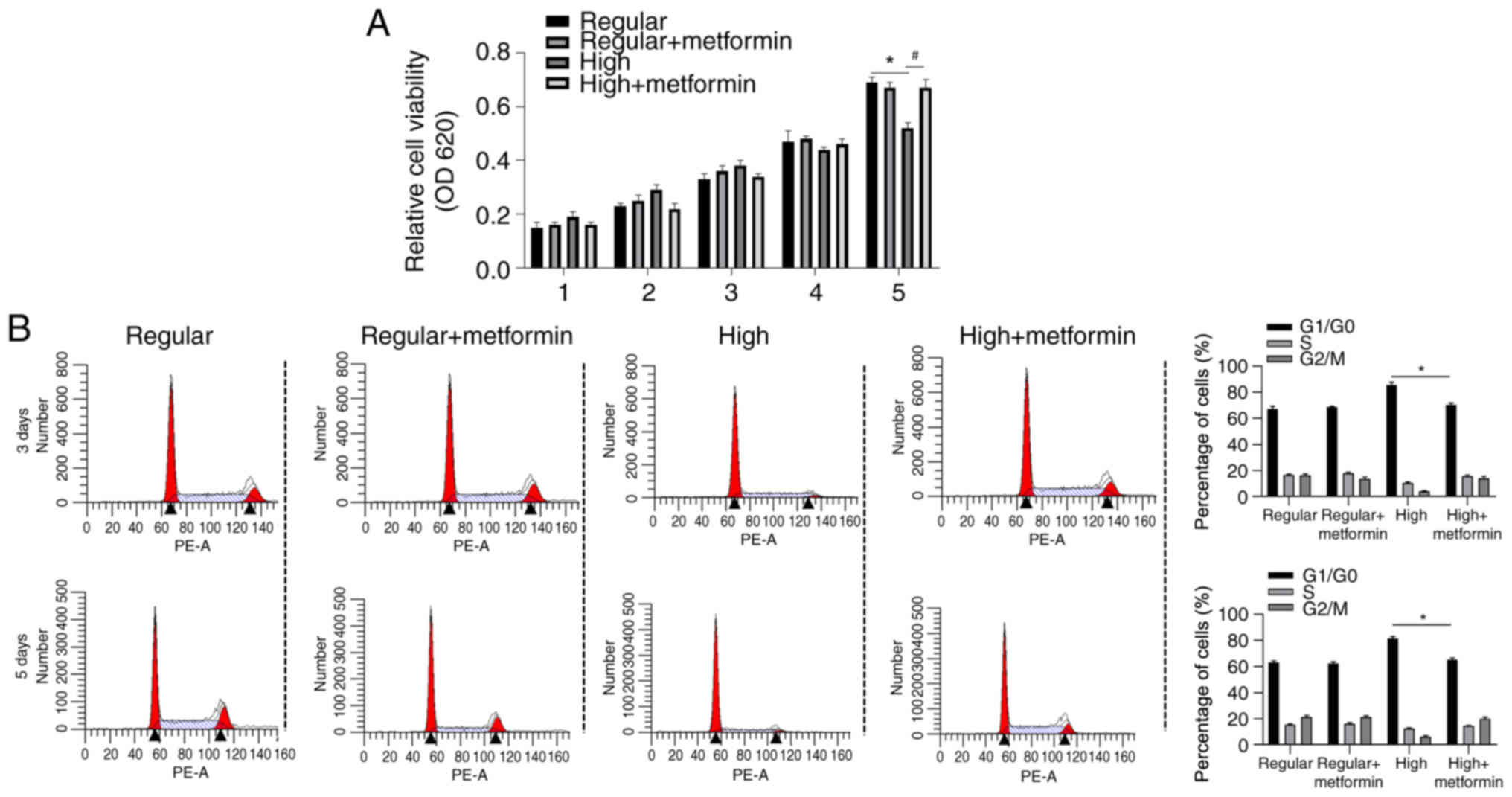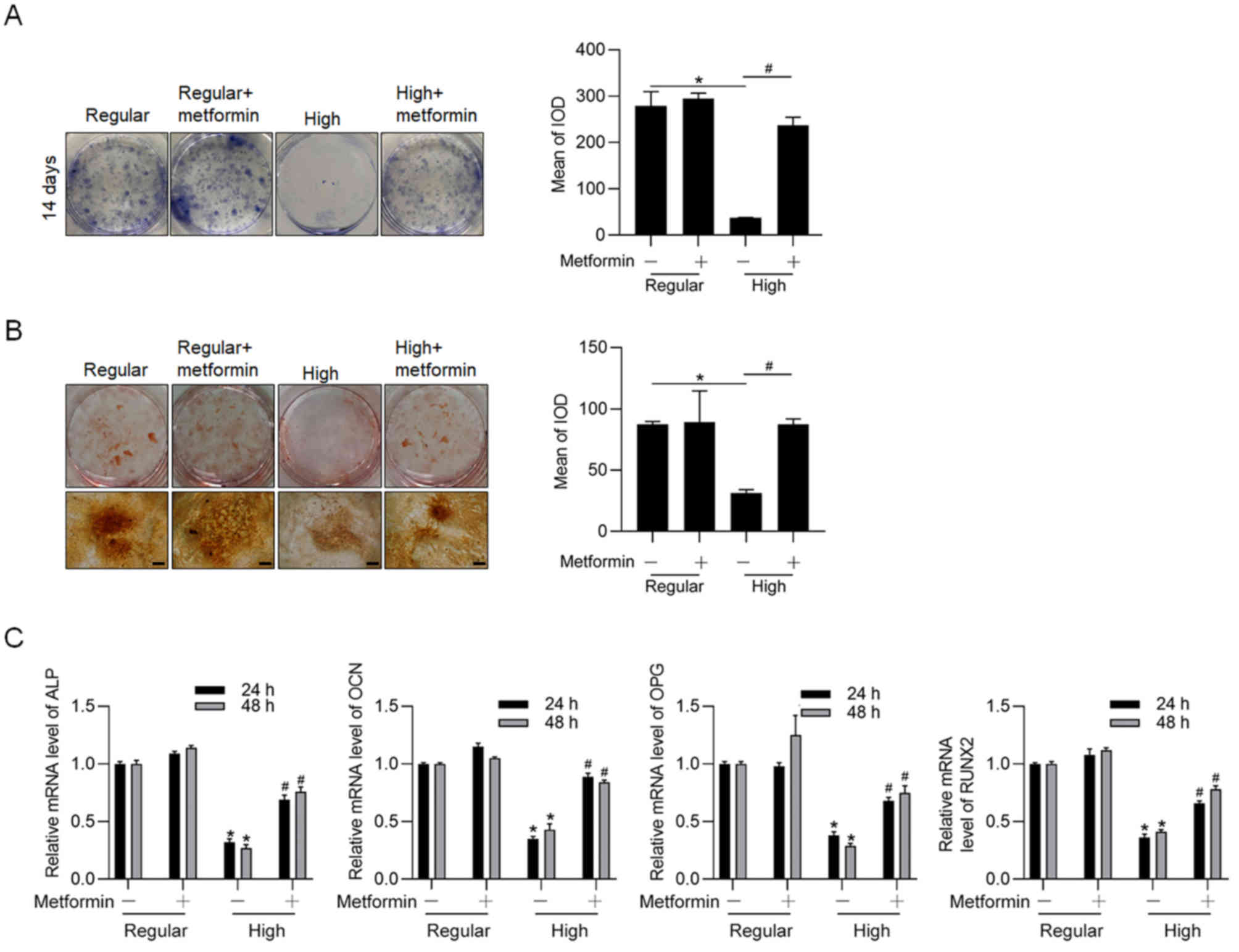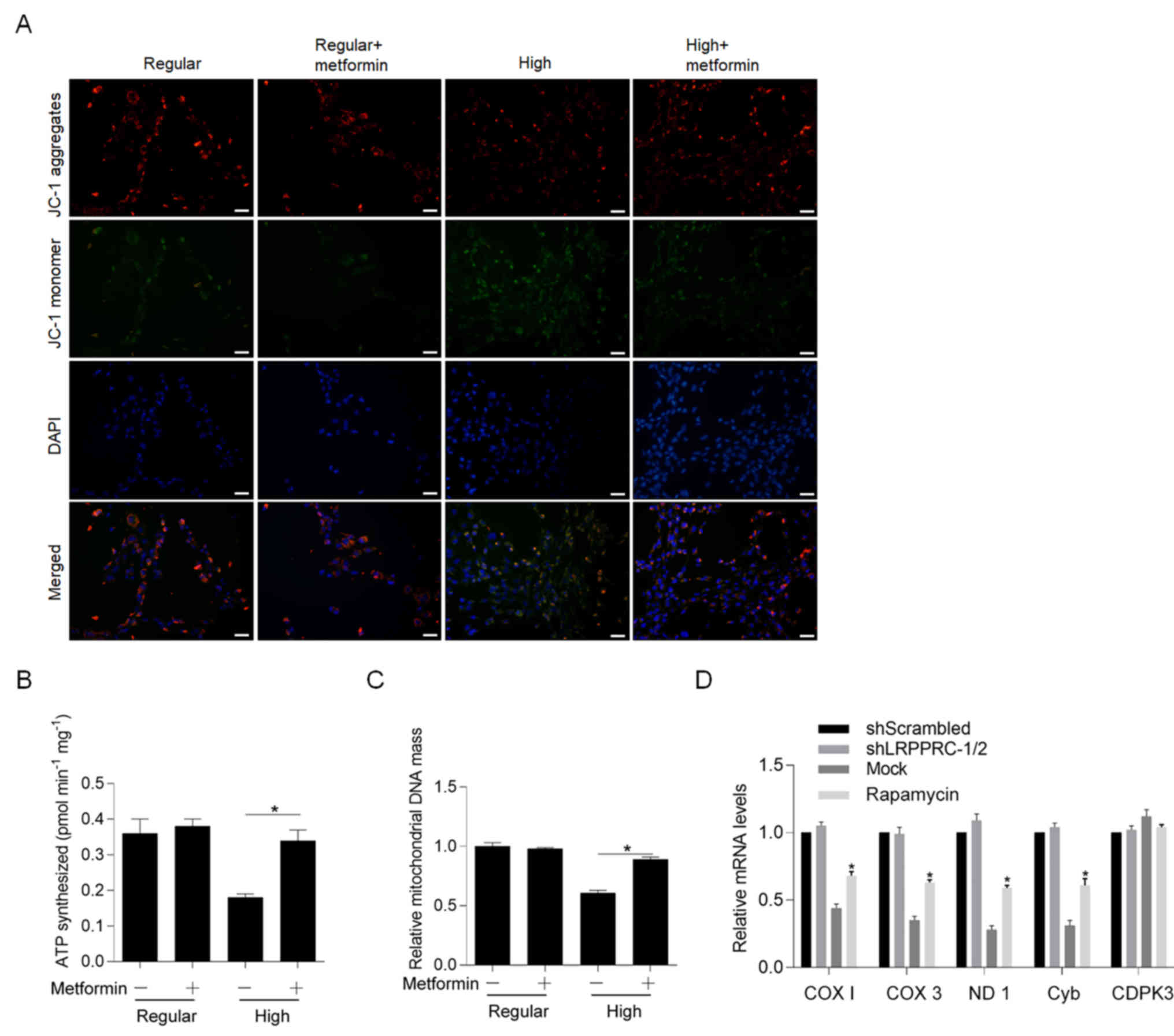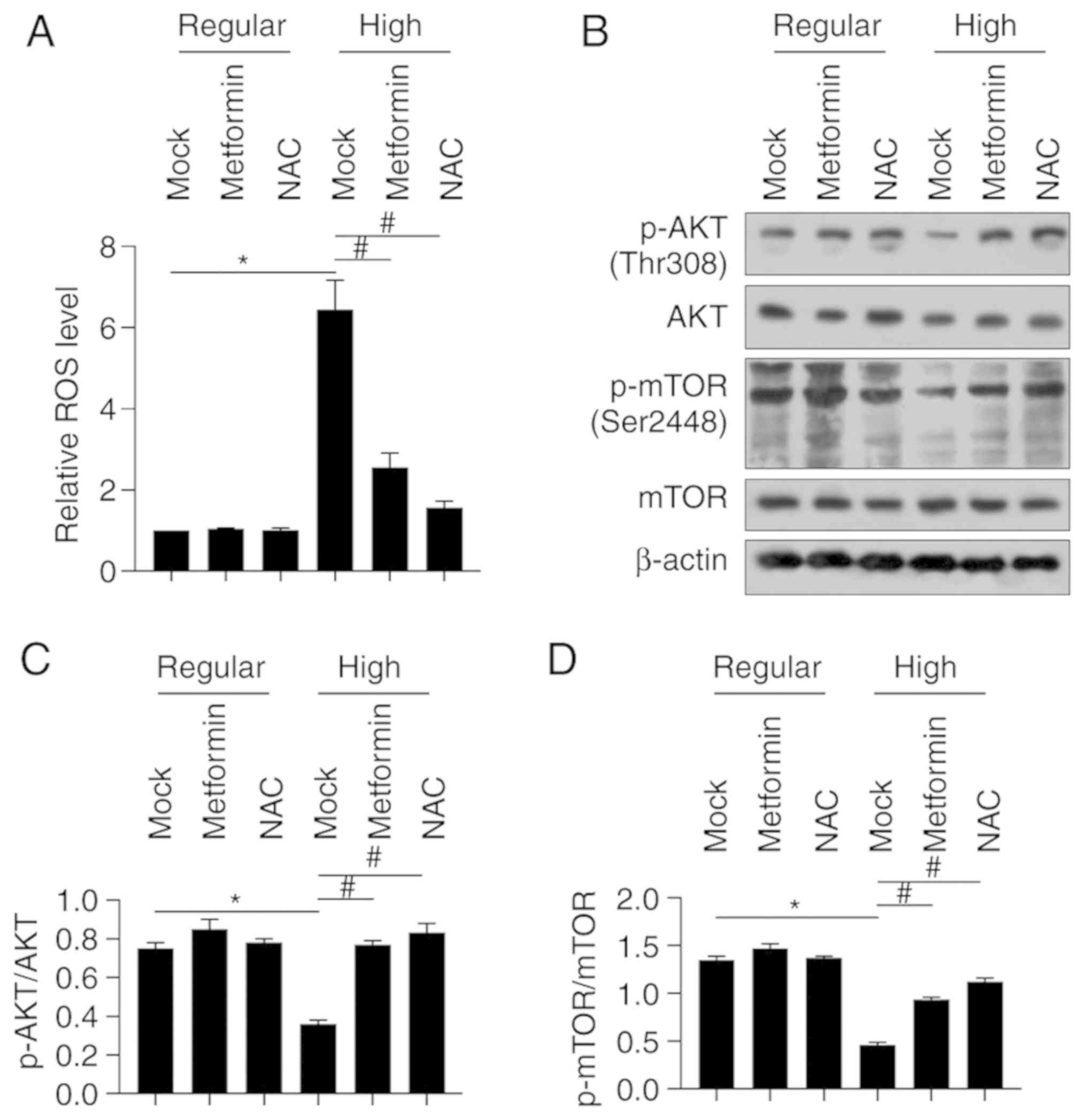|
1
|
Janghorbani M, Van Dam RM, Willett WC and
Hu FB: Systematic review of type 1 and type 2 diabetes mellitus and
risk of fracture. Am J Epidemiol. 166:3387–505. 2007. View Article : Google Scholar
|
|
2
|
Garmendia Madariaga A, Santos Palacios S,
Guillén-Grima F and Galofré JC: The incidence and prevalence of
thyroid dysfunction in Europe: A meta-analysis. J Clin Endocrinol
Metab. 99:923–931. 2014. View Article : Google Scholar : PubMed/NCBI
|
|
3
|
Dhaliwal R, Cibula D, Ghosh C, Weinstock
RS and Moses AM: Bone quality assessment in type 2 diabetes
mellitus. Osteoporos Int. 25:1969–1973. 2014. View Article : Google Scholar : PubMed/NCBI
|
|
4
|
Chen Y, Hu Y, Yang L, Zhou J, Tang Y,
Zheng L and Qin P: Runx2 alleviates high glucose-suppressed
osteogenic differentiation via PI3K/AKT/GSK3β/β-catenin pathway.
Cell Biol Int. 41:822–832. 2017. View Article : Google Scholar : PubMed/NCBI
|
|
5
|
Harvey NC, McCloskey EV, Mitchell PJ,
Dawson-Hughes B, Pierroz DD, Reginster JY, Rizzoli R, Cooper C and
Kanis JA: Mind the (treatment) gap: A global perspective on current
and future strategies for prevention of fragility fractures.
Osteoporos Int. 28:1507–1529. 2017. View Article : Google Scholar : PubMed/NCBI
|
|
6
|
Jackuliak P and Payer J: Osteoporosis,
fractures, and diabetes. Int J Endocrinol. 2014:8206152014.
View Article : Google Scholar : PubMed/NCBI
|
|
7
|
Wybier M, Mathieu P, Morvan G, Vuillemin
Bodaghi V and Guerini H: Muculoskeletal radiology: ankle and foot
in adults. J Radiol. 89:711–724, quis 735-736. 2008.(In French).
View Article : Google Scholar : PubMed/NCBI
|
|
8
|
Rosenbloom AL and Silverstein JH:
Connective tissue and joint disease in diabetes mellitus.
Endocrinol Metab Clin North Am. 25:473–483. 1996. View Article : Google Scholar : PubMed/NCBI
|
|
9
|
Smith DG, Barnes BC, Sands AK, Boyko EJ
and Ahroni JH: Prevalence of radiographic foot abnormalities in
patients with diabetes. Foot Ankle Int. 18:342–346. 1997.
View Article : Google Scholar : PubMed/NCBI
|
|
10
|
Markowicz Piasecka M, Sikora J, Szydlowska
A, Skupien A, Mikiciuk Olasik E and Huttunen KM: Metformin - a
future therapy for neurodegenerative diseases: Theme: Drug
discovery, development and delivery in Alzheimer's disease guest
editor: Davide Brambilla. Pharm Res. 34:2614–2627. 2017. View Article : Google Scholar : PubMed/NCBI
|
|
11
|
Cortizo AM, Sedlinsky C, McCarthy AD,
Blanco A and Schurman L: Osteogenic actions of the anti-diabetic
drug metformin on osteoblasts in culture. Eur J Pharmacol.
536:38–46. 2006. View Article : Google Scholar : PubMed/NCBI
|
|
12
|
Gao Y, Xue J, Li X, Jia Y and Hu J:
Metformin regulates osteoblast and adipocyte differentiation of rat
mesenchymal stem cells. J Pharm Pharmacol. 60:1695–1700. 2008.
View Article : Google Scholar : PubMed/NCBI
|
|
13
|
Zhen D, Chen Y and Tang X: Metformin
reverses the deleterious effects of high glucose on osteoblast
function. J Diabetes Complications. 24:334–344. 2010. View Article : Google Scholar : PubMed/NCBI
|
|
14
|
Shao X, Cao X, Song G, Zhao Y and Shi B:
Metformin rescues the MG63 osteoblasts against the effect of high
glucose on proliferation. J Diabetes Res. 2014:4539402014.
View Article : Google Scholar : PubMed/NCBI
|
|
15
|
Renner K, Seilbeck A, Kauer N, Ugele I,
Siska PJ, Brummer C, Bruss C, Decking SM, Fante M, Schmidt A, et
al: Combined Metabolic Targeting With Metformin and the NSAIDs
Diflunisal and Diclofenac Induces Apoptosis in Acute Myeloid
Leukemia Cells. Front Pharmacol. 9:12582018. View Article : Google Scholar : PubMed/NCBI
|
|
16
|
Wang X, Feng Z, Li J, Chen L and Tang W:
High glucose induces autophagy of MC3T3-E1 cells via ROS-AKT-mTOR
axis. Mol Cell Endocrinol. 429:62–72. 2016. View Article : Google Scholar : PubMed/NCBI
|
|
17
|
Park KR, Nam D, Yun HM, Lee SG, Jang HJ,
Sethi G, Cho SK and Ahn KS: β-Caryophyllene oxide inhibits growth
and induces apoptosis through the suppression of PI3K/AKT/mTOR/S6K1
pathways and ROS-mediated MAPKs activation. Cancer Lett.
312:178–188. 2011. View Article : Google Scholar : PubMed/NCBI
|
|
18
|
Livak KJ and Schmittgen TD: Analysis of
relative gene expression data using real-time quantitative PCR and
the 2(-Delta Delta C(T)) Method. Methods. 25:402–408. 2001.
View Article : Google Scholar : PubMed/NCBI
|
|
19
|
Fiorini C, Cordani M, Gotte G, Picone D
and Donadelli M: Onconase induces autophagy sensitizing pancreatic
cancer cells to gemcitabine and activates Akt/mTOR pathway in a
ROS-dependent manner. Biochim Biophys Acta. 1853:549–560. 2015.
View Article : Google Scholar : PubMed/NCBI
|
|
20
|
Botushanov NP and Orbetzova MM: Bone
mineral density and fracture risk in patients with type 1 and type
2 diabetes mellitus. Folia Med (Plovdiv). 51:12–17. 2009.PubMed/NCBI
|
|
21
|
Wang C, Li H, Chen SG, He JW, Sheng CJ,
Cheng XY, Qu S, Wang KS, Lu ML and Yu YC: The skeletal effects of
thiazolidinedione and metformin on insulin-resistant mice. J Bone
Miner Metab. 30:630–637. 2012. View Article : Google Scholar : PubMed/NCBI
|
|
22
|
Sun H, Dai K, Tang T and Zhang X:
Regulation of osteoblast differentiation by slit2 in osteoblastic
cells. Cells Tissues Organs. 190:69–80. 2009. View Article : Google Scholar : PubMed/NCBI
|
|
23
|
Granero-Moltó F, Weis JA, Miga MI, Landis
B, Myers TJ, O'Rear L, Longobardi L, Jansen ED, Mortlock DP and
Spagnoli A: Regenerative effects of transplanted mesenchymal stem
cells in fracture healing. Stem Cells. 27:1887–1898. 2009.
View Article : Google Scholar : PubMed/NCBI
|
|
24
|
Li C, Yang L, Ren X, Lin M, Jiang X, Shen
D, Xu T, Ren J, Huang L, Qing W, et al: Groove structure of porous
hydroxyapatite scaffolds (HAS) modulates immune environment via
regulating macrophages and subsequently enhances osteogenesis. J
Biol Inorg Chem. 24:733–745. 2019. View Article : Google Scholar : PubMed/NCBI
|
|
25
|
Yang J, Ma C and Zhang M: High glucose
inhibits osteogenic differentiation and proliferation of MC3T3 E1
cells by regulating P2X7. Mol Med Rep. 20:5084–5090.
2019.PubMed/NCBI
|
|
26
|
Sharma U, Pal D and Prasad R: Alkaline
phosphatase: An overview. Indian J Clin Biochem. 29:269–278. 2014.
View Article : Google Scholar : PubMed/NCBI
|
|
27
|
Takanche JS, Kim JE, Han SH and Yi HK:
Effect of gomisin A on osteoblast differentiation in high
glucose-mediated oxidative stress. Phytomedicine. 66:1531072020.
View Article : Google Scholar : PubMed/NCBI
|
|
28
|
Liu J, Shen W, Zhao B, Wang Y, Wertz K,
Weber P and Zhang P: Targeting mitochondrial biogenesis for
preventing and treating insulin resistance in diabetes and obesity:
Hope from natural mitochondrial nutrients. Adv Drug Deliv Rev.
61:1343–1352. 2009. View Article : Google Scholar : PubMed/NCBI
|















